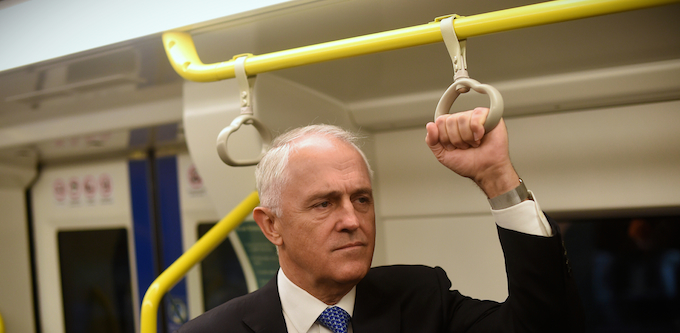

SMEs were considered some of the winners of the 2016 federal budget, but with one week to go until Treasurer Scott Morrison’s 2017 budget platform is unveiled, focus seems to have veered away from the government’s innovation platform.
Instead, the stage is being set for solutions to fiscal and social problems, including housing affordability, education funding and the tracking of welfare payments. As more details of policies trickle out across the week, here are four policy areas to watch ahead of next week’s budget.
1. Housing affordability and first home buyer assistance
The housing affordability crisis has been the driving force of pre-budget talks, and with the electorate less than enthused about the idea of using superannuation to fund housing deposits, a different kind of first home buyers’ savings plan is now reportedly on the cards.
News.com.au reported over the weekend that a salary-sacrifice kind of savings model is likely to appear in the budget papers, giving young savers an incentive to put away dollars for buying their first property. Cabinet minister Matt Canavan told Sky News the government is “alive” to the problem of young people being unable to afford a home, but the exact details of the government’s platform have not yet been released.
The two major parties remain divided on whether the problem of housing supply can be solved without major interventions in tax arrangements; Labor continues to insist nothing will improve long-term without changes to capital gains tax concessions and negative gearing, while the Coalition has ruled out any major changes on these fronts.
However, any first home owner savings account model would see the government move back towards a policy it ceased two years ago. First Home Owner Savings accounts, which allowed savers to receive a match from government of up to 17%, were abolished in July 2015.
2. Higher education funding changes
University vice-chancellors have been foreshadowing big challenges to the higher-ed sector, and it appears the government will be proceeding with a package to secure more than $1 billion in savings from the university sector. Education Minister Simon Birmingham is expected to unveil details of the policy on Monday evening, which Fairfax reports will include fee increases, changes to the repayment of HELP student loan requirements and some reductions in funding.
Higher education officials have continued to grapple with the changing face of the student body, with vice-chancellor of the University of Melbourne Glyn Davis saying in 2016 that not only was the sector facing cost pressures, it was also grappling with the challenge of courting students who now saw a clear path into entrepreneurship without a university degree. At the time, several business owners told SmartCompany Australian universities didn’t provide the level of practical, skills-based business knowledge needed for the innovation agenda to truly be realised.
This year’s higher education policy will not be the first time the Coalition has attempted to change the country’s university funding models: it had been pursuing the deregulation of student fees since 2013, but was later forced to shelve the plan.
3. The “welfare crackdown”
Welfare recipients “gaming” the system are set to be targeted with new financial punishments, reports The Australian, to address a group of Centrelink users accused of engaging in “unusual” behaviour to stop payments from being stopped when they should be.
Employment Minister Michaelia Cash has told The Australian the Coalition intends to improve the system so that it doesn’t serve to “fund a lifestyle choice”.
While the Coalition remains concerned about those misusing welfare, job figures for March indicated the participation rate across the country actually jumped 0.2%, while unemployment rate remained steady at 5.9%.
4. Financial complaints overhaul
The complexity of dispute resolution systems at financial institutions has been in the spotlight this year, with the big banks committing to clearer language and more straightforward terms to provide a more level playing field for smaller businesses.
Fairfax reports Tuesday’s budget papers will include a plan to overhaul a number of pre-existing watchdogs into a ‘one-stop shop’ for complaints about financial services. This would replace the Financial Services Ombudsman and Credit and Investments Ombudsman, reports Fairfax, and could also come to cover superannuation.
The policy will respond to a dispute resolution review conducted by Professor Ian Ramsay, which recommended the implementation of a “single industry ombudsman” and increased caps on the amount small businesses can claim in compensation when they bring a dispute.
Never miss a story: sign up to SmartCompany’s free daily newsletter and find our best stories on Twitter, Facebook, LinkedIn and Instagram.


COMMENTS
SmartCompany is committed to hosting lively discussions. Help us keep the conversation useful, interesting and welcoming. We aim to publish comments quickly in the interest of promoting robust conversation, but we’re a small team and we deploy filters to protect against legal risk. Occasionally your comment may be held up while it is being reviewed, but we’re working as fast as we can to keep the conversation rolling.
The SmartCompany comment section is members-only content. Please subscribe to leave a comment.
The SmartCompany comment section is members-only content. Please login to leave a comment.